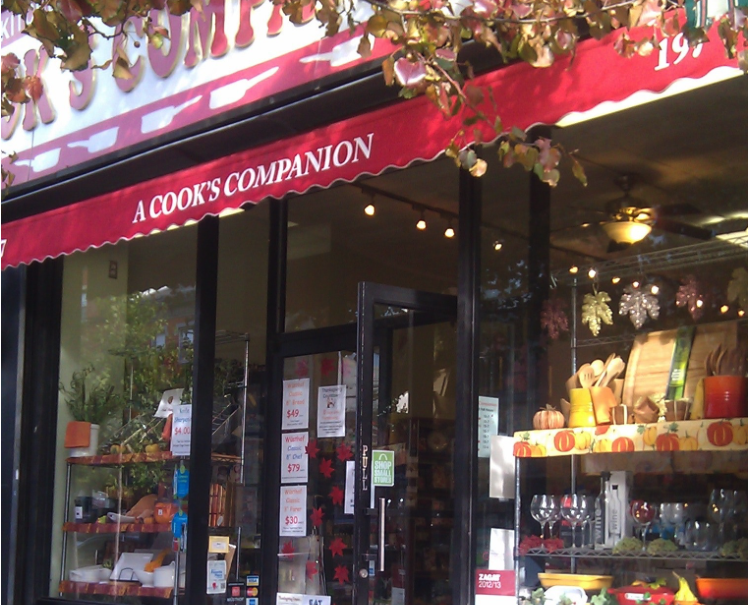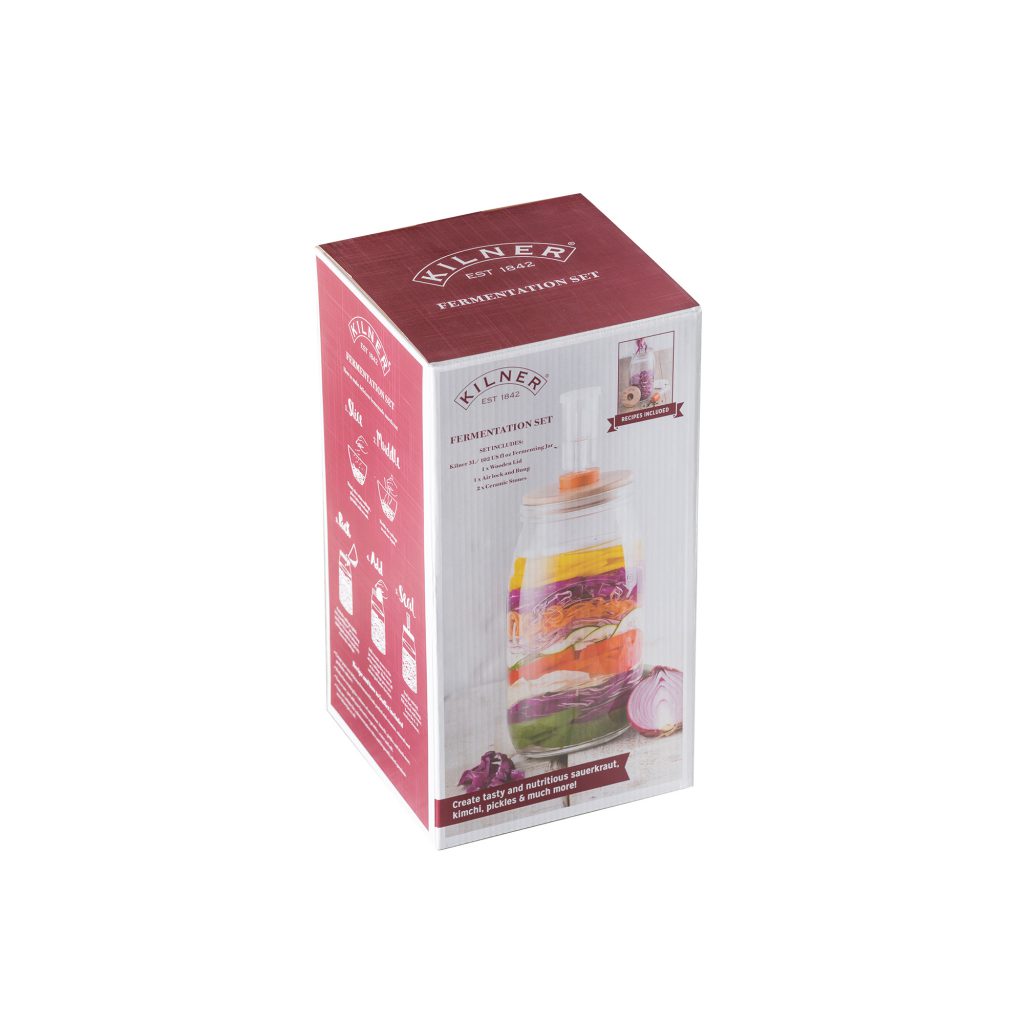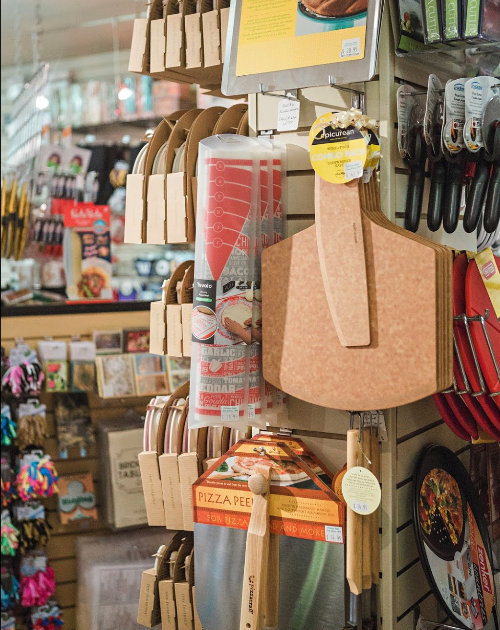Brooklyn, N.Y. —home to the artisanal pickle set—should also be the hot bed of home fermentation, but retailers in that city are split about whether they see a trend out there.
“Unfortunately, it never caught on here,” says Jennifer Baron, owner of A Cook’s Companion on Atlantic Avenue. “Maybe I was too ahead of things, but Brooklyn Kitchen has been very successful. However, these are two VERY different neighborhoods.”

Over at Brooklyn Kitchen on Frost Street, owner Harry Rosenblum thinks fermentation is more than a trend, it is a cooking technique that is here to stay, but from a product standpoint it is certainly a trend.
“You see some interesting new products on the market that make it easier for the consumer to ferment their own kraut and kimchi at home, and you don’t need a lot of equipment to do it,” says Rosenblum.
As goes Brooklyn, so goes the rest of the country. Fermentation, the delectable culinary cousin to composting and a media food trend darling, is bubbling along in product sales at kitchenware stores across the country: taking off here, just stewing there and over completely somewhere else.
Fermentation is an age-old food preparation technique using yeasts, bacteria and molds that plays a role in cuisines worldwide. Kimchi, sauerkraut, yogurt and kombucha are just a few of the pantry staples brought to you by the fermentation process. Consumer interest in DIY fermentation has been fueled by news of the health benefits, as well as by the high price of store-bought fermented foods. Plus, home fermenting is easy: all that’s needed is a half-gallon crock, some shredded cabbage and a weight.
Or you can choose from a number of kits and other devices now on the market.
“More consumers are interested in fermenting their own foods, both for control and for health reasons,” says Rosenblum. “They want foods that aren’t full of commercial preservatives.”
Rosenblum, says his store—now being run as a cooking school—is offering fermentation classes this year. (He is currently on the road promoting his cookbook on how to make and use your own vinegar, also a fermented product). “It’s very simple to make,” he says.
But the trend appears to be sporadic when it comes to product sales at independent stores. Location, it seems, with fermentation as it is with real estate, is everything.
“I’ve ordered a few fermentation kits and have not received them yet, nor have I had any requests for them,” says Marcia Jochem, owner of Thyme in the Kitchen, in Evansville, Ind. “But I know it’s becoming a trend. Check back with me a few months.”
However, up in Skaneateles, N.Y., Ellen Kluge, owner of Rhubarb Kitchen Shop, isn’t planning to devote any space in her 1,000-square-foot store to fermentation products. “I’ll let the hardware store in town take care of that,” she says.
For some the trend is fading. “For us, fermentation has peaked,” says Amy Pomp Lorette, general manager of Mrs. Cook’s in food-trend setting Seattle. “We’ve been selling related products for the past several years, but it has slowed down a bit.”
Pomp Lorette has stocked stoneware crocks used for pickling in the store “for as long as I can remember,” and she says the crocks are still her best-selling fermentation product.
“Fermentation kits and instant picklers were popular when they first came out but not as much anymore,” she says. “Too gimmicky perhaps?”
Maybe too gimmicky for Seattle foodies, but not for customers in other towns. Fermentation appears to be trending in Greensboro, N.C. Art Nading says fermentation products had a strong initial run at his store, The Extra Ingredient, last spring. Nading says sales got a boost when restaurants in Greensboro started offering the Korean fermented cabbage dish kimchi for the first time.

Diners who wanted to recreate the meal at home snapped up the store’s Kilner fermentation kits.
“This was the first time we’ve offered a fermentation kit, and it is still selling for us really well,” Nading says. “We didn’t go into it too deep, but I am going to reorder.”
In Pittsburgh, KC Lapiana says that her fermentation products sold best at her store In the Kitchen when they ran product demos.
“For one hot minute fermentation was pretty popular,” Lapiana says. “When we first brought it in we did a demo for two weekends in a row and we sold them like crazy. Now we have them at the back of the store with the canning supplies and the line isn’t doing as well.”
But she said she would consider reordering an assortment of fermentation kits, even as canning season wraps up this fall.
“You can make sauerkraut year-round, but I want the manufacturer to set a lower minimum order before I would consider ordering it more frequently. If I order it again, I would demonstrate it again,” she adds, noting that fermentation kits benefit from the additional education support at retail given the customer base, which for her store trends younger.
“Millennials get the biggest kick out of the DIY products,” she says. “They want to go back to basics; they don’t want electrics or bread machines. They don’t know how to cook either, so it’s interesting.”
Rosane Young, buyer for The Gourmet Warehouse in Vancouver, B.C., says fermentation is where spiralizers were three years ago, in terms of trends.
“We’ve had fermentation tools, kits and actives since early 2016, Young says. “I feel the trend is still in its growing stages. We are seeing sales grow with each year, but it’s not something we feature or push in the store. We have both kombucha and fermentation kits. The customers definitely lean more toward millennials and anyone who is health conscious and food aware.”
But others say the Millennial market is not the only market for fermentation kits. “I wouldn’t say it’s a Millennial trend,” says Pomp Lorette, adding that customers interested in home fermentation track older, “maybe mostly the older end of the Millennials and Generation X.”

Dave Welby, owner of Culinary Apple in Chelan, Wash., says he has sold fermentation products to all age groups for years. “It isn’t a trend,” he says of the category, “but we are making more of a statement this year. We just brought in 18 kits and have already sold five. Mainly to people who have digestive issues.”
The health benefits and the ease of home preparation of fermented foods are reasons Brooklyn Kitchen’s Rosenblum says the rise of fermentation category of products is not simply because of a food trend, but rather the revival of a cooking technique that people have used for centuries.
“It is a permanent shift in the way consumers cook and eat,” he says.



